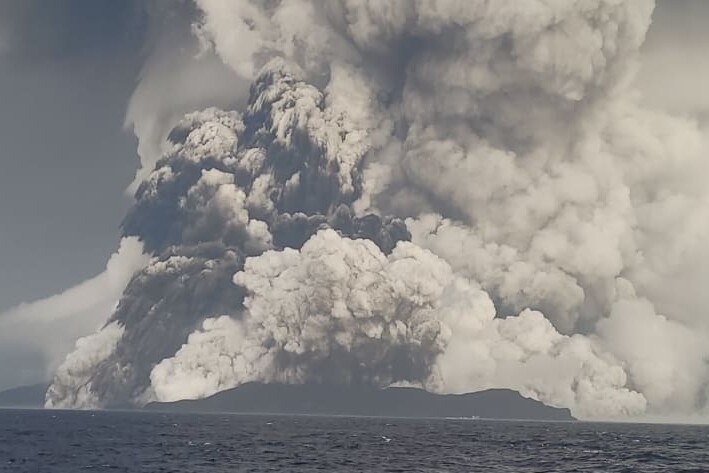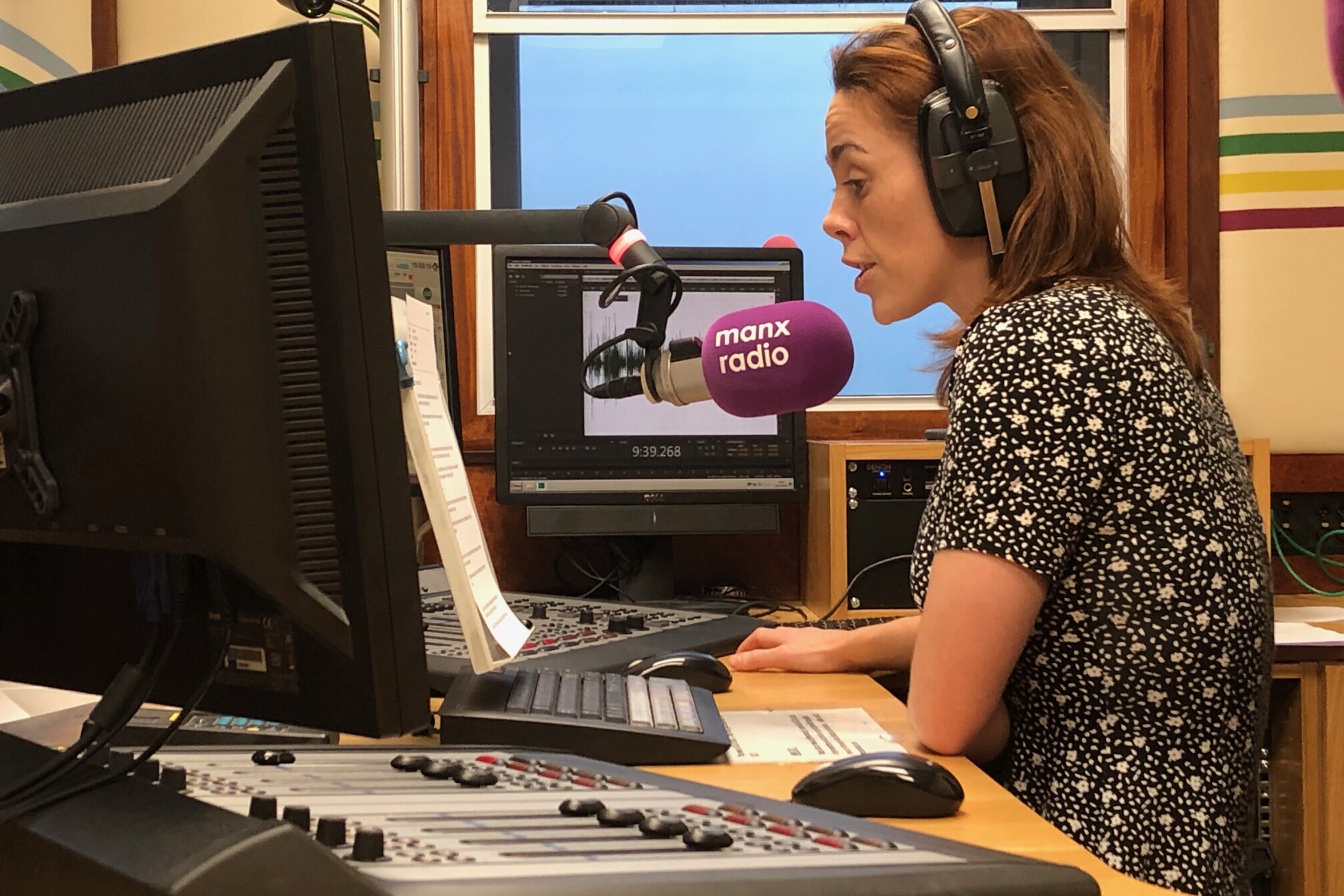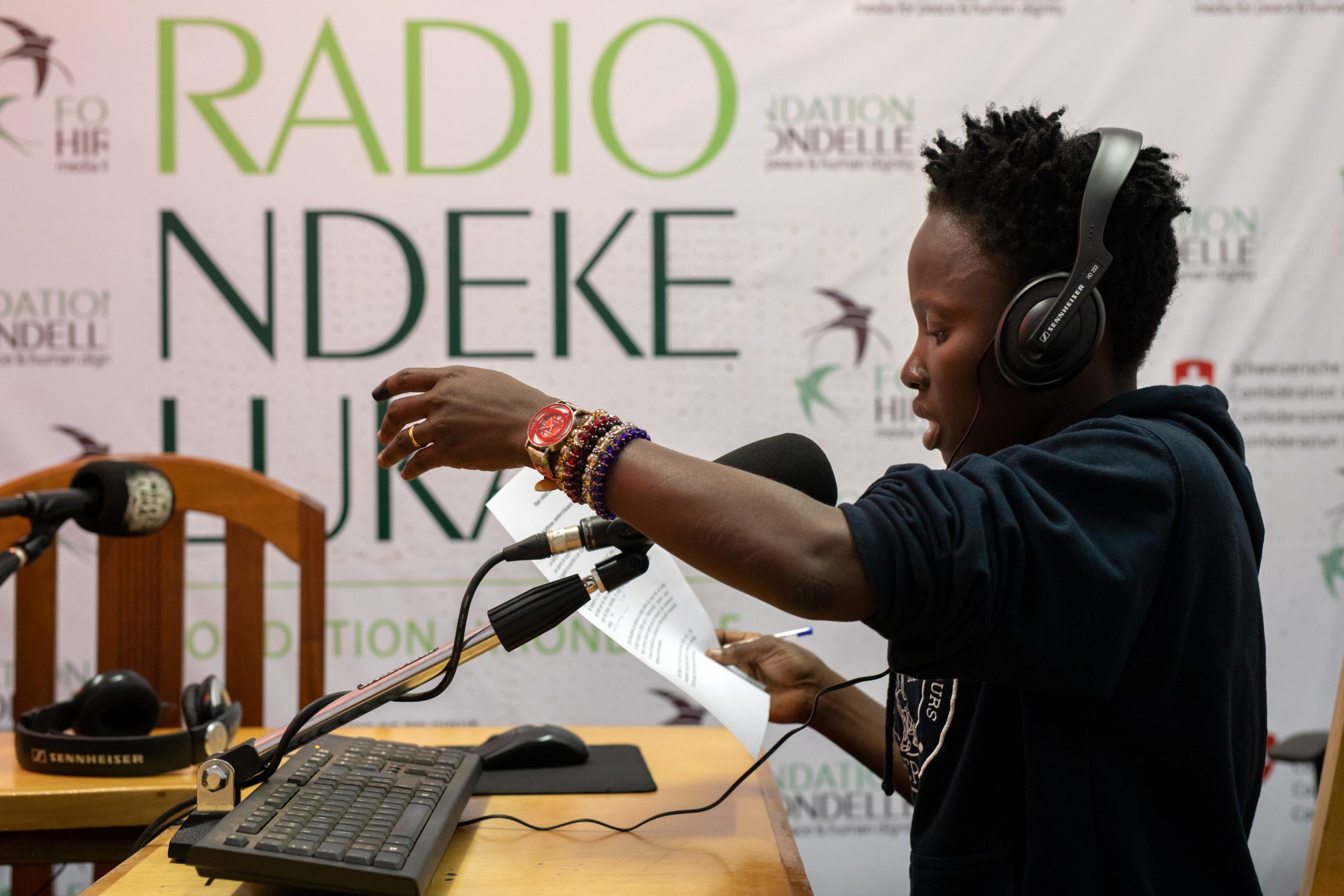WORLD RADIO DAY 2025 | MEMBER INSIGHT
Professional and safe: This is how Swedish Radio handled the tragic incident in Örebro
13th February 2025
It is still difficult to take in what happened in Örebro, a violent crime that has deeply affected us all. But in the midst of all the hardship, it is clear what role serious media have to play in situations like these, writes programme director, Sofia Wadensjö Karén.

This Insight was originally published by Swedish Radio and is republished with permission.
By Sofia Wadensjö Karén, Programme Director, Swedish Radio
In the event of such a terrible act as the one at Risbergska School in Örebro, society needs, fast, accurate and factual information. This is evident in the fact that the influx of audiences to serious media is always extremely significant during major news events. Industry colleagues noted a large increase in readers and viewers. And at Swedish Radio we saw how listening significantly increased. In such an intense news event with lots of rumour spreading, uncertain witness accounts and massive pressure from the public, serious media are really put to the test. In all essentials, the media houses coped with that pressure.
At Swedish Radio, we reported quickly, objectively and respectfully. The live broadcast began immediately after the first reports that a school shooting had taken place. At first, there were a few shorter live broadcasts from Ekot and P4 Örebro, which at 13:37 changed to live broadcast: a live broadcast that in practice became a news broadcast that lasted over 10 hours. Our reporting was professional, knowledgeable and confident yet careful – from the first reports of shootings at a school to the evening’s news of the large number of deaths to the shock, despair and sadness of the following days.
Read more: PSB’s vital role highlighted at World Radio Day
With this so fresh in mind, it is primarily our news-reporting that I am thinking about today, on World Radio Day, the day when the role of radio in society is recognised around the world. The listening figures after the tragic incident at Risbergska School in Örebro show that we at Swedish Radio are an important source of information in crisis situations.
During our broadcasts on the evening of February 4, the reach of our app, Swedish Radio Play, increased by between 25–40 percent. For P4 Örebro, which of course had a central role in our reporting, listening increased by 290 percent compared to a normal situation.
We saw a the same type of influx of listeners at, for example, the outbreak of war in Ukraine and the incident on Drottninggatan in 2017. This places a commitment on us.
It is important that we provide the audience with fast, in-depth and unmissable reporting. And we did that – thanks to all of our dedicated, competent, and discerning colleagues at Swedish Radio.
Listen toour podcast
Uncovering and exploring the biggest
issues facing public media
Dealing with a news situation like this is challenging. Decisions must be made under high pressure, rumours are widespread, and it is difficult to verify information due to pressured societal functions – at the same time as the public’s need for information is insatiable.
I would therefore like to highlight the work of all of our employees who have been involved in various ways and have adjusted to be able to deliver in the difficult situation. It is important that we provide the audience with fast, in-depth and unmissable reporting. And we did that – thanks to all of our dedicated, competent, and discerning colleagues at Swedish Radio.
Of course, teamwork is behind the reporting that our audience has been able to listen to during the week. Having said that, I would still like to highlight P4 Örebro’s impressive and decisive news work, including empathetic linear broadcasts. An event like this places a number of different kinds of strain on a local editorial team, something that P4 Örebro has managed with impressive professionalism and tact.
Thanks to our wide range and our various channels, we have been able to cover all conceivable listener needs. Ekot’s live broadcasts during the afternoon and evening of 4 February kept listeners updated on the latest situation. On Tuesday evening, P3 Krim released an extra podcast and P3 Nyheter was quickly on site in Örebro. The day after the attack, P1 Morgon was on site in Örebro for both an informative and empathetic broadcast directly from the streets and squares. We made the decision early on to offer music on P2 and to co-broadcast Vaken on P1, P3 and P4 during the night after the attack in order to both offer regular news updates and to provide space for the thoughts and feelings that our nightly listeners had.
Music was changed on all channels and all programme makers reviewed the content of their programmes. For example, the Archbishop was invited for a conversation about grief processing in Morgonpasset in P3 and Förmiddag in P1 invited a crisis expert the day after the attack.
In the extreme pressure that arises from a terrible attack like this, many, often difficult, journalistic decisions are made. We must have a good basis for the information we publish. Ekot’s publisher Klas Wolf-Watz was interviewed about the assessments and considerations that Ekot made in the first few days.
As I said, it is difficult to mention individual efforts because the collective effort has been so incredibly strong. But I still wanted to take the opportunity on a day like this to mention some of the important journalism that has been published on Swedish Radio.
Despite the terribly difficult event, I cannot help but feel a strong sense of pride in how Swedish Radio and our employees have helped – and are helping – all of Sweden through this event.
Related Posts
13th February 2025
FBC: PSB’s vital role highlighted at World Radio Day
During an event held in Fiji to mark…
13th February 2025
World Radio Day: A century old, still the most reliable
On World Radio Day, two century-old…
13th February 2024
World Radio Day: a century of informing, educating & entertaining
World Radio Day celebrates the enduring…




